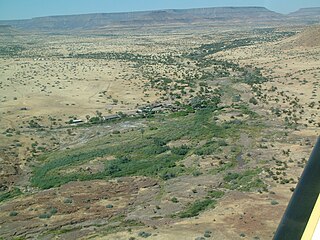
Isopoda is an order of crustacean, which includes woodlice and their relatives. Members of this group are called Isopods and include both terrestrial and aquatic species. All have rigid, segmented exoskeletons, two pairs of antennae, seven pairs of jointed limbs on the thorax, and five pairs of branching appendages on the abdomen that are used in respiration. Females brood their young in a pouch under their thorax.
Baltia, Basilia or Abalus is a mythic island in northern Europe mentioned in Greco-Roman geography in the connection of amber.

Nycteribiidae is a family of the true fly superfamily Hippoboscoidea are known as "bat flies", together with their close relatives the Streblidae. As the latter do not seem to be a monophyletic group, it is conceivable that bat flies cannot be united into a single family.
Dormer's bat or Dormer's pipistrelle is a species of vesper bat. It is the only species in its genus. It is found in Bangladesh, Bhutan, India, and Pakistan. Its natural habitats are subtropical and tropical dry forests, arable land, plantations, rural gardens, and urban areas.

The lesser bamboo bat or lesser flat-headed bat is one of the smallest species of vesper bat, and is native to Southeast Asia.
The dark-brown serotine is a species of vesper bat found in Central and West Africa.
For the film see Alamar (film)

Bella at Midnight is a fantasy novel for children by Diane Stanley. The story is based on the fairy tale Cinderella. It was first published in 2006.
Basilia is a genus of bat flies in the family Nycteribiidae.
The World Register of Marine Species (WoRMS) is a taxonomic database that aims to provide an authoritative and comprehensive list of names of marine organisms.
Habuprionovolva aenigma is a species of sea snail, a marine gastropod mollusk in the family Ovulidae, the ovulids, cowry allies or false cowries.
Habuprionovolva hervieri is a species of sea snail, a marine gastropod mollusk in the family Ovulidae, the ovulids, cowry allies or false cowries.
Habuprionovolva umbilicata is a species of sea snail, a marine gastropod mollusk in the family Ovulidae, the ovulids, cowry allies or false cowries.

Habuprionovolva is a genus of sea snails, marine gastropod mollusks in the family Ovulidae.

Ovula is a genus of sea snails, marine gastropod mollusks in the family Ovulidae.

Palmwag is a veterinary control point, an oasis and a tourism concession area on communal land in northern Namibia. It is located in the Kunene region on the Uniab River, in northwestern Damaraland, halfway between Swakopmund and the Etosha National Park. It covers an area of 400,000 hectares and has populations of Hyphaena petersiana. Palmwag is situated on the Red Line, a veterinary cordon fence separating northern Namibia from the rest of the country.
Basilia fletcheri is parasitic bat fly in the genus Basilia, in the subgenus Basilia. It is found in India.
Basilia boardmani, the southeastern myotis bat fly, is a species of fly in the family Nycteribiidae. The insect is parasitic, and lives by taking blood meals from its host, a species of bat. It differs from all other Basilia species by the presence of a finger-like process on the metanotum of the female.








